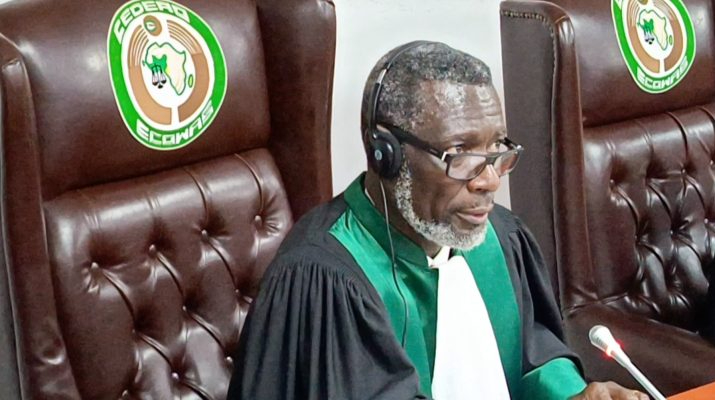ECOWAS court dismisses complaint against Liberia

The Economic Community of West African States (ECOWAS) Court of Justice has dismissed a complaint against Liberia for its failure to investigate the Lutheran Church Massacre and prosecute those responsible.
The Lutheran Church Massacre occurred on July 29 and 30, 1990, when Liberian Government forces killed approximately 600 civilians at St. Peter’s Lutheran Church, a designated Red Cross shelter in Monrovia, Liberia.
Despite decades of survivor-led action calling for justice, the Liberian Government failed to investigate and prosecute those responsible.
The applicants in the case are three siblings who lost over a dozen family members in the massacre and the Global Justice & Research Project, a Liberian non-governmental organization that works to advance justice and accountability for war crimes.
On October 17, the ECOWAS Court held that there is no statute of limitations on claims for violations of fundamental human rights, affirming that victims can bring such claims regardless of how much time has passed since the violation.
However, the court found that it did not have jurisdiction over the Applicants’ complaint because the massacre took place before the protocol that granted the court jurisdiction in human rights cases entered into force in 2005.
“International law requires that States investigate and prosecute human rights violations, and the failure to do so constitutes a continuing violation of human rights,” said Center for Justice and Accountability Staff Attorney Lindsay Bailey.
“Liberia’s obligation to protect the right to life was well-established under international law, including the African Charter, long before the Massacre took place in 1990.
“Liberia’s failure to investigate and prosecute perpetrators of the Massacre is an ongoing violation of the right to life that harms our clients today. The Court’s decision, declining jurisdiction because the ECOWAS mechanism for individuals to enforce their rights was only established in 2005, ignores that Liberia had voluntarily undertaken an international legal obligation to respect and protect these rights by 1990. This disappointing decision disregards the true extent of Liberia’s obligations and unnecessarily limits the ability of survivors of atrocity to vindicate their rights.”
This decision comes at an important juncture for Liberia’s transitional justice process. In the past year, the Liberian Government created an office to establish a War and Economic Crimes Court to investigate and prosecute war crimes.
Establishing a court is a key step towards fulfilling Liberia’s obligation to provide survivors of atrocity with a legal remedy.
“My family has suffered for decades, first as victims of the Lutheran Church Massacre, then as victims of the Liberian Government’s failure to investigate and prosecute the perpetrators of this crime,” said one applicant, who has dedicated his life to advocating for justice for the victims and survivors of Liberia’s civil wars. “I want justice for my relatives. While I am disappointed with the outcome of the ECOWAS case, I will not rest until Liberia establishes a court.”

